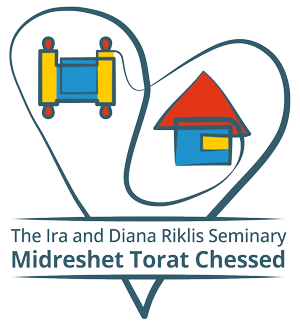
25 Nov MTC Highlights: Parshat Vayeshev

Dvar Torah by Lani Margolias - Educator
Parshat Vayeshev
Studies show that over 70% of teens are not happy with the way they look, and that percentage increases as they get older, especially with women. When did looks and the emphasis on appearances become a focus in our society? The truth is, that this culture was sparked by the Ancient Greeks.
But doesn’t Judaism value beauty and hold it in high esteem?
In this week’s portion, the Torah describes Yosef as someone who had “handsome features and a beautiful complexion.”It speaks of the beauty of our Matriarchs, and delves into the physical beauty of both the Tabernacle and the Temple. There is also the concept of performing commandments with added beauty, and we go to great lengths to beautify our shuls, and our Shabbat and holiday tables. Why was there such strong opposition within Judaism towards the Greek culture?
The answer lies in the difference between the source of beauty within Judaism and the Greek culture. The Greek’s ultimate value was beauty, in all forms – art, the human physique, an aesthetic environment. They spread their philosophy all over the world, yet when they reached Israel, they were met with incredible resistance, resulting in the battle of Chanukah.
This was a battle between beauty and holiness. The Greeks saw holiness in beauty while the Jews saw beauty in holiness. Beauty is found in harmony and symmetry. The Greeks valued the breathtaking harmony displayed in physical beauty, but they failed to see the deeper spiritual dimension that transcends this world. Judaism however, views the ultimate beauty as the harmony between the physical and spiritual worlds. We appreciate physical beauty not as a value in it of itself, but rather when it’s used to enhance the holy.
In fact, the Hebrew word for the Greece is Yavan, יון.When you write it out, the word is actually very beautiful and symmetrical. A short line then a longer one and a longer one. However, at the same time, these are the only three letters in the Hebrew alphabet that don’t have any depth to them. Ultimately there is something superficial about its beauty. However, if you take the Hebrew letter that represents righteousness and values, the letter tzadik, and place it in front of the word yavan, what does it spell? Zion, ציון.
This is the difference between the Jewish definition of beauty and theirs. We value beauty! Jerusalem and the Temple were breathtaking in their beauty. But it’s a beauty used to connect to higher values, to meaning and spirituality.
The Jewish people won the battle on Chanukah over 2,000 years ago, but the war continues today. There are billion dollar industries telling our children what they should look like and what‘s considered beautiful. Their self-image is constantly in question, because they just can’t compete with the billboards and the unrealistic standards placed on them.
Chanukah is the time to teach our family and the world the true definition of beauty. Looking good doesn’t necessarily mean that you are a beautiful person. Leading a life full of meaning, purpose and values, that’s what real beauty is all about. This Chanukah let your family and friends know how beautiful they really are, and let your inner light shine and celebrate what’s truly beautiful.
Shabbat Shalom and Chanukah Sameach!

Student Reflection
Gabirella Glausiusz - Hasmonean High, UK - London, UK
I’ve learnt so much from being here at MTC. I’m so grateful to have this incredible opportunity to use my time both to learn and develop my Jewish studies as well as look after a group of beautiful kids. I’ve truly learnt what it is to not just learn Torah, but to live it and the great happiness and joy that this brings.
Of course I’m lucky to have had many happy times before coming to MTC. But what I’ve really learnt here is that true happiness doesn’t stem from a grand gesture, or a big plan or a huge event. True happiness comes from giving your time to others. It comes from small moments of connection. When a child calls to you because he’s hurt and you’re that person who can calm him down and make him feel better again. When the kids come and hold your hand, just because. When they smile when they see you.
One of my girls was away for a week, and the day she came back she ran up to me and gave me a big hug as soon as she saw me. There are some days when you’re really tired, or feeling down, but moments like that uplift you and make everything feel worthwhile.
It’s these small, special moments that count, and that bring me true joy. I hope I’m making a difference in my kids’ lives, but I know they’re making a difference in mine.






































































